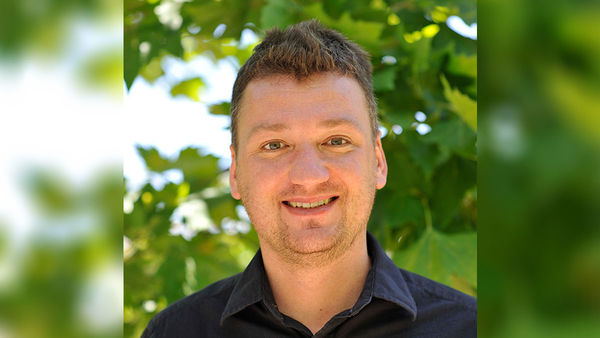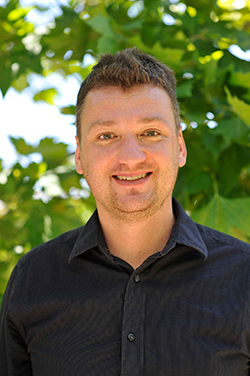

Biologist Christopher Patzke joined the Notre Dame faculty in August, and he is ready to get into the lab and start his neurobiology research.
“What I’m really excited about is that this will be the first time I have my own lab,” said Patzke, the John M. and Mary Jo Boler Assistant Professor in the Department of Biology and the Boler-Parseghian Center for Rare & Neglected Diseases. “Now, for the first time, I can do whatever I want. I can have my own team...so I can spend 24/7 in the lab with my colleagues there,” he joked.
Patzke studies the genetic makeup of the human brain at the cellular level. By examining both healthy and unhealthy neurons, for instance, he can investigate mutations that lead to brain disorders, like autism, epilepsy, or neurodegenerative diseases.
In his lab, Patzke uses a number of advanced techniques to create models of brain cells, including converting induced pluripotent stem cells into neurons. Through this method, researchers can study a person’s brain using just a blood sample. Patzke has even experimented with “mini-brains” or organoids, which are about the size of a pea and show how cells work together, on a very small scale.
“I could theoretically grow my own brain cells in a dish, which are synaptically active and communicate with each other” Patzke said.
This type of research will help scientists to understand the molecular underpinnings of human neuronal networks and develop therapeutic agents to treat devastating neurological conditions. Right now, Patzke is working on identifying molecular mechanisms impaired by disease-causing mutations. He hopes to find ways to bypass these abnormal signaling pathways.
Patzke is excited to build a team who can collaborate on these ideas at Notre Dame.
“I like the atmosphere between the people in the department and the University. [There is] some sort of community sense and altruism here,” Patzke said. “At Notre Dame, there is a little bit less competition between the people in the department and more helping each other.”
Patzke, who was born and raised in Berlin, Germany, studied biology and philosophy at the Freie Universität there, before earning his PhD in developmental neurobiology at the Max-Delbrück-Center for Molecular Medicine. He then did his postdoctoral research and worked as a research associate at Stanford University. Patzke has published a number of papers, including cover stories and highlights for Cell and The Journal of Experimental Medicine. Now, he looks forward to continuing his work at Notre Dame.
“It is definitely a very good environment for collaborations but also for myself to be able to learn new things,” Patzke said.
Originally published by at science.nd.edu on September 08, 2020.